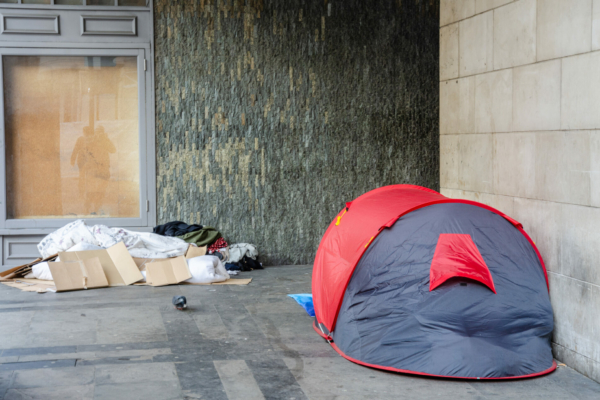Can you be intentionally homeless from accommodation where you can’t smoke?

In Kyle v Coventry City Council the Court of Appeal considered the question of whether it is reasonable to continue to occupy accommodation made available to a homeless applicant and where he did not have security of tenure and was required to abide by rules such as not being able to smoke in the property.
Mr Kyle has a troubled history including drug addiction, for which he was receiving a methadone script. He applied as homeless to Coventry and was provided with temporary accommodation – originally under section 188, then later the full housing duty was accepted. He was moved from place to place because of various misdemeanours.
His last temporary accommodation was in a shared house, where he was expected to abide by house rules, limiting visitors and requiring him not to smoke. He was supported in complying with his methadone script.
However, he was found to have gone into the rooms of other residents and stolen from them. This led to the housing provider evicting him and Coventry therefore finding that he was intentionally homeless from that accommodation.
He initially argued that this accommodation should have attracted protection from eviction. However, by the time the case came before the County Court, he was arguing as an alternative that the accommodation was too precarious to be considered accommodation that was reasonable for him to continue to occupy, especially given the conditions of occupancy.
The secondary ground of appeal was the one that was pursued to, and dismissed by, the Court of Appeal.
They reminded themselves of the decisions of the House of Lords in R v Brent London Borough Council, ex p. Awua [1996] AC 55 and R (Aweys) v Birmingham City Council; Moran v Manchester City Council) [2009] UKHL 36. The Appellant argued that the Appellant remained statutorily homeless whilst he was in the short term accommodation, and therefore could not be found intentionally homeless from it.
The Court summarised the effect of those judgments:
- There is no need for accommodation to be so bad that a person could not be expected to stay there another night for there to be homelessness for the purposes of the 1996 Act. On the other hand, a person does not have to be entitled to remain in accommodation indefinitely, or for any particular period of time, for it to be “reasonable for him to continue to occupy” it, and neither need he have accommodation which it would be “reasonable … to continue to occupy” for ever. In general at least, section 175(3) of the 1996 Act will be satisfied, and a person will not be “homeless”, if there is accommodation which it would be “reasonable for him to continue to occupy” over the period which would elapse before the local housing authority re-housed him;
- The physical characteristics of accommodation will often be of central importance in determining whether it is “reasonable … to continue to occupy” it. Restrictions affecting the person’s life in, and use of, the accommodation may also be relevant. Possibly, the length of time that a person has the right to remain in accommodation may sometimes be of significance, but that is much less likely to matter. Without attempting to be exhaustive, other factors that might be material, depending on the particular facts, include affordability, violence, abuse and threats.
- For completeness, I should add that a person remains “homeless” when in accommodation secured under section 188 of the 1996 Act. … This, however, is because to hold otherwise “would defeat the whole scheme of the Act” rather than as a matter of interpretation of the words “reasonable … to continue to occupy”:
Mr Kyle had done something – steal from other vulnerable residents of his shared accommodation – as a result of which he had ceased to occupy accommodation which would have been available to him but for that act. That was common ground. The issue was whether this was accommodation which would have been reasonable for him to continue to occupy. The Court held that it was:
“…common sense suggests that the review officer was entitled to conclude that… Mr Kyle had accommodation which it was ‘reasonable for him to continue to occupy’ ”.
They dismissed his contention that this was analogous to the domestic abuse refuge in Moran: it had a very different character.
The Court took the opportunity to clarify what matters a reviewing officer should take into account, and the extent to which the local authority is expected to deal with matters that were not raised by the Appellant at the review stage:
“…it was not incumbent on the review officer to address in her decision every potential sub-issue, regardless of whether the Law Centre had referred to it.”
Permission to appeal to the Supreme Court was refused by the Court of Appeal.
Catherine Rowlands appeared for the Respondent local authority, instructed by their legal services.

